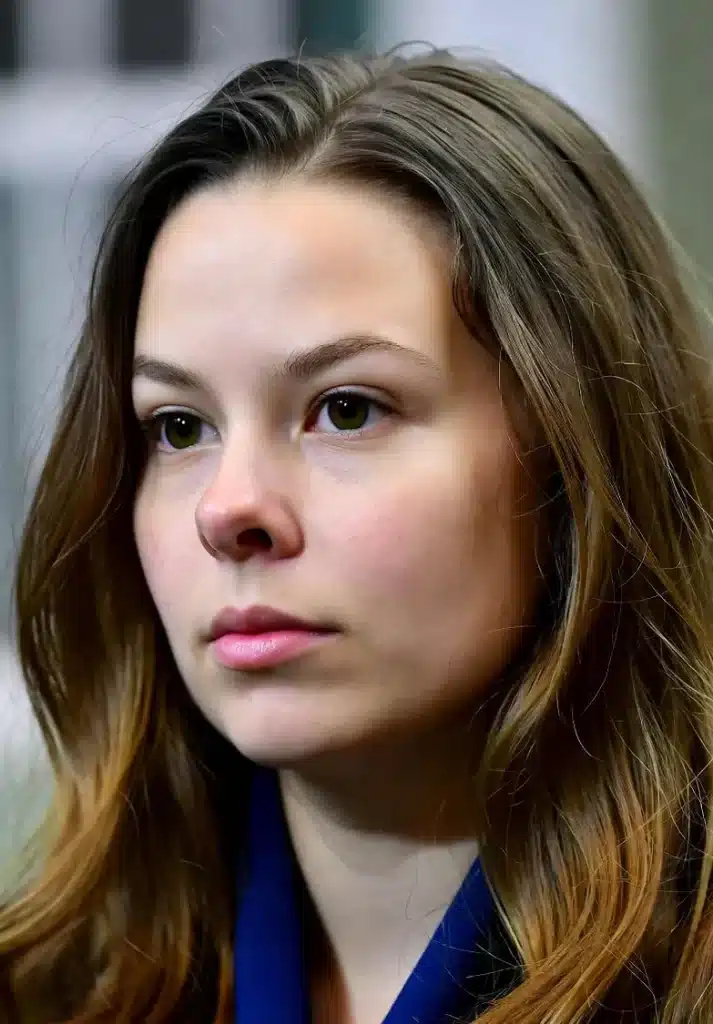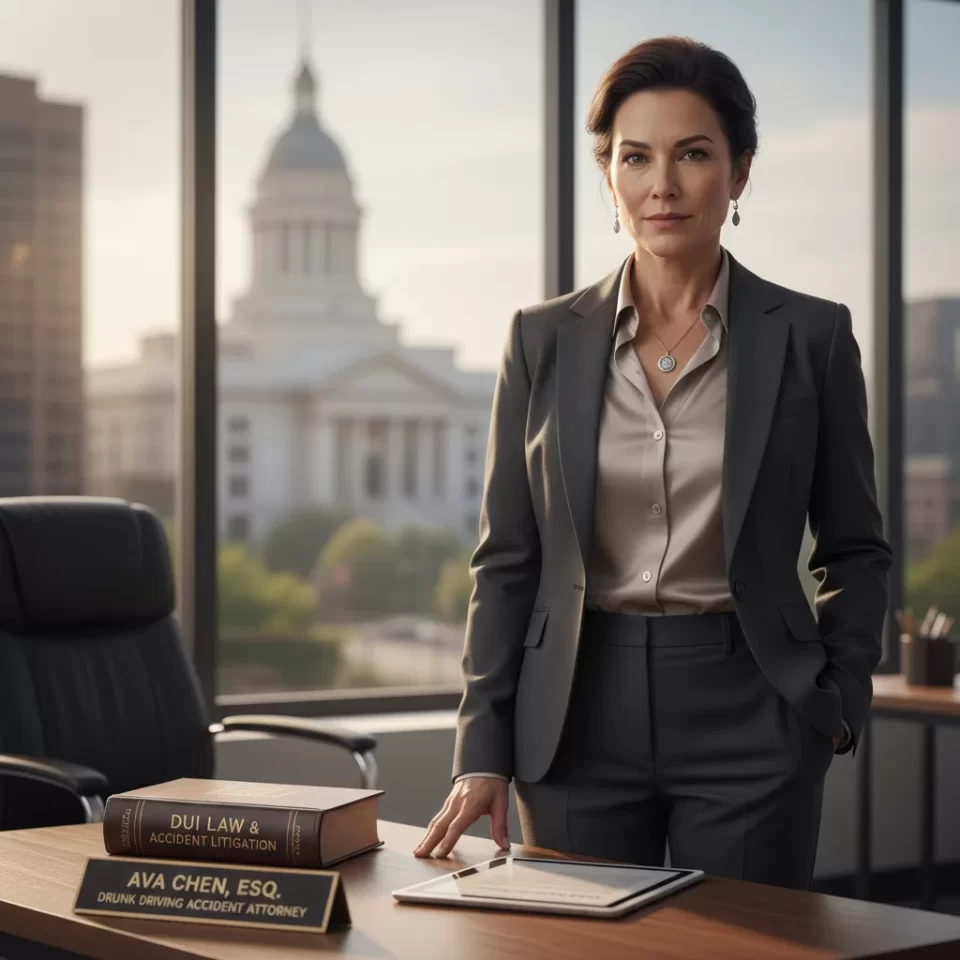- Home
- Sexual Abuse
- University Sexual Abuse
- Bennington College Scandal
Bennington College Scandal
- February 13, 2026
-
Sarah Miller
- Fact Checked By Our Attorneys
Bennington College, a small liberal arts women’s college in Vermont, has faced decades of controversy. Allegations of misconduct involving members of faculty , inappropriate relationships, and institutional negligence have sparked media attention and survivor advocacy. Works like Bret Easton Ellis’s The Secret History reference aspects of campus culture that have contributed to scrutiny. Survivors and alumni continue to demand transparency and accountability.
If you or someone you know experienced abuse or misconduct at Bennington College, legal options may be available to pursue justice and compensation.
No Win, No Fee. Let the Best Sex Abuse Attorneys Fight for your Compensation!
Key Takeaways:
Bennington College survivors have reported sexual misconduct and abuse by faculty members, highlighting failures in institutional oversight and accountability.
Students may experience long-term emotional and psychological effects, including trauma, trust issues, and difficulties in personal and professional relationships.
Abuse often occurred in close-knit campus settings classrooms, dorms, co-led projects, and arts programs where power imbalances made students vulnerable, affecting their world and academic experience.
Alumni, authors, and journalists have documented these events, emphasizing how educational environments that taught creativity and collaboration sometimes allowed misconduct to persist.
- Legal options exist for survivors, including filing lawsuits against the college for negligence and seeking compensation for therapy, damages, and lost opportunities. Free, confidential case reviews can guide survivors in taking the first step toward justice.
Find out your eligibility in 2 minutes
If your child has been a victim of sexual abuse, you are not alone. Many families face the same fear, pain, and search for justice. Our team can connect you with experienced child sexual abuse attorneys who understand these sensitive cases, protect your child’s rights, and guide your family through filing a legal claim for the compensation and accountability you deserve.
Begin your free and confidential case review today.

What Is the Bennington College Scandal?
Bennington College, a small liberal arts school in Vermont, has long been recognized for its focus on arts, literature, and progressive education. However, beneath its picturesque campus and close-knit student-body, serious allegations of sexual misconduct, abuse of power, and institutional negligence have emerged over the decades.
Survivors and bennington alum have shared stories of harassment, inappropriate relationships with members of faculty , and an administration that often failed to provide a safe environment for students. Reports in outlets such as The New York Times, podcasts, and investigative articles have shed light on a culture of silence, where complaints were minimized or dismissed entirely, leaving survivors without the protection or accountability they deserved.
Much of the attention surrounding Bennington College has intersected with literary and cultural references. Works like Bret Easton Ellis’s The Rules of Attraction and Donna Tartt’s The Secret History a novel inspired by the college experience capture aspects of the campus culture that may have indirectly reflected real-life dynamics of power, secrecy, and close-knit academic circles.
Alumni, journalists, and writers such as Jonathan Lethem and Lili Anolik have explored these tensions in interviews and essays, noting how friendships, mentorships, and the immersive arts environment could sometimes create a rabbit hole of influence and control. These narratives reveal the duality of Bennington: a place for extraordinary educational and artistic growth, but also a space where abuses could quietly occur, unnoticed by the broader public.
Historical accounts indicate that the college’s culture at times allowed certain faculty members and staff to exploit their positions. Instances of inappropriate relationships and misconduct were reported across multiple departments, including arts, dance, psychology, and creative writing. Survivors recount moments during freshman year when boundary lines between instruction and personal relationships were blurred.
Dorm life, intimate classes, and co-led projects sometimes placed students in vulnerable positions, leaving them unsure where to turn for help. While some faculty aimed to foster genuine mentorship and a vibrant campus community, others abused their authority, leaving lasting emotional and psychological scars.
The administration’s response or lack thereof has been a central concern in discussions about the scandal. College presidents, including President Leigh and other past leaders, have been criticized for failing to take public action or implement systemic protections when complaints arose.
Investigations suggest that certain disciplinary processes were opaque, giving the appearance of addressing issues without truly enforcing accountability. This lack of transparency has amplified survivor frustration and has led many alumni to speak publicly about their experiences, hoping to create change and demand institutional reform.
Historical Allegations, Lili Anolik’s Reporting and Investigations
The history of Bennington College has been marked by both extraordinary educational achievements and troubling allegations of misconduct. Since the 1980s, concerns have been raised about faculty-student relationships, power dynamics, and the college’s ability or willingness to protect its body. Numerous accounts indicate that some members of faculty crossed professional boundaries, engaging in inappropriate relationships that took advantage of their authority over young students. These controversies were often compounded by the college’s intimate campus setting, where close-knit classes, co-led projects, and dorm life blurred the lines between mentorship and exploitation.
Many survivors have come forward, recounting experiences from their freshman year or during winter term, describing how friendships stimulated in classrooms and arts courses sometimes coexisted with fear and vulnerability. The college’s liberal arts focus particularly in writing, dance, psychology, and the arts encouraged close collaboration, yet this environment occasionally allowed misconduct to go unchecked. Students who spoke up frequently found their concerns dismissed, leaving them with little recourse and enduring emotional and psychological effects.
Media coverage has played a critical role in exposing these historical allegations. Articles in The New York Times and features in podcasts hosted by journalists like Lili Anolik have brought survivor stories to the public eye. Literary references, including Donna Tartt’s The Secret History, highlight the culture at Bennington College that inspired fictionalized accounts of faculty-student dynamics and student behavior.
Authors such as Bret Easton Ellis and Jonathan Lethem have also reflected on aspects of campus life, noting how intense academic and social environments could foster both creativity and dysfunction. These accounts provide context for understanding how the college’s structure and culture may have contributed to misconduct over time.
Books, podcasts, and survivor interviews have revealed recurring themes: a lack of transparency in administrative processes, inconsistent responses to complaints, and the minimization of student concerns. Reports suggest that while some faculty members maintained professional boundaries, others exploited their positions, creating situations where students felt trapped or silenced.
One former student described a snowy evening in a dorm, reflecting on how first-class workshops and co-led projects sometimes masked predatory behavior. Another recounted interactions in the campus snack bar or informal gatherings where inappropriate attention from instructors occurred, illustrating how misconduct could permeate daily life on campus.
The college’s attempts to address complaints were often insufficient. While some cases received internal review, the processes were opaque, leaving survivors unsure whether action would be taken. Many reported being discouraged from escalating complaints publicly, reinforcing a culture of silence.
Administrators at times offered only partial explanations or reassurances, failing to implement systemic changes that could prevent future misconduct. Despite these challenges, some students and alumni continued to advocate for accountability, bringing attention to the issue through articles, podcasts, and public conversations.
The historical allegations at Bennington College are intertwined with its broader campus culture. Intensive courses, co-led projects, and immersive arts programs fostered a sense of community and creativity, yet they also created opportunities for abuse.

Institutional Response and Criticism
The administration at Bennington College has faced longstanding criticism for its handling of allegations of sexual misconduct and abuse on campus. Reports and survivor accounts suggest that, over the years, the college often reacted slowly or sometimes not at all when complaints were raised. While some faculty members and staff were called to account, many survivors felt that their concerns were minimized, dismissed, or met with opaque explanations. Students and Bennington alum alike have noted that the college’s responses frequently failed to provide a safe environment or meaningful accountability.
Several former students, including those who later became future writers, have described their time at Bennington as simultaneously inspiring and fraught with anxiety. The college’s emphasis on creativity, literary exploration, and close mentorship fostered friendships, artistic growth, and intensive classroom collaboration.
However, the same structures that encouraged such opportunities also allowed power imbalances to go unchecked. Co-led projects, immersive arts courses, and dorm-based interactions sometimes exposed students to situations where faculty misconduct could occur without immediate administrative intervention.
Critics argue that the administration often prioritized the college’s reputation over student safety. While public statements occasionally acknowledged misconduct, survivors reported that internal investigations were inconsistent, lacked transparency, and rarely led to meaningful reform. The only explanation frequently offered to students and parents was a reassurance that “the matter is being handled,” leaving many feeling unheard and unsupported. This approach reinforced a toxic campus culture, where fear, silence, and self-censorship became commonplace.
Alumni reflections including essays, interviews, and podcasts highlight the tension between the college’s celebrated educational environment and its structural failures. The literary brat pack and other cultural observers have noted that the campus environment inspired fictional characters in works like American Psycho and The Secret History, drawing attention to the sometimes dark, insular nature of student life.
These creative works, while fictional, underscore real concerns about the balance of intellectual freedom and personal safety on campus. Shirley Jackson’s influence on the college’s literary culture also shaped the intensity of student engagement, which could inadvertently mask underlying risks.
Specific examples cited by survivors include incidents during fall semester workshops, summer courses, or collaborative projects, where inappropriate behavior by faculty members went unaddressed. Students described moments in the middle of class or during co-led sessions when boundaries were blurred, leaving them uncertain about whom to trust. Reports from graduate and undergraduate students alike suggest that the administration’s responses often failed to reflect the severity of these incidents, contributing to a climate of fear and mistrust within the body of student.
Furthermore, scholarship and research into campus culture indicate that small, close-knit universities like Bennington are particularly vulnerable to these dynamics. The combination of intense academic programs, immersive arts courses, and residential life can foster strong personal connections, but it can also make it difficult for students to report misconduct without fear of social or academic repercussions.
Alumni interviews reveal that friendships and mentorships, while stimulating intellectual growth, sometimes coexisted with a sense of powerlessness or the need to admit to minor infractions to avoid conflict with authority figures.
FREE!
Find out if you're eligible and may be eligible for compensation.
Get your Free Case Review and Maximize You Payout With the Help From Legal Claim Assistant.
Impact on Survivors and Reputation of the College
The impact of the Bennington College scandal on survivors has been profound, encompassing both emotional and psychological dimensions. Many students recount that incidents during their four years at the college left lasting trauma, affecting their sense of trust, self-esteem, and ability to form healthy relationships. The intense academic and arts-focused environment where students often collaborated closely with faculty members and co-leaders on projects meant that abuse or boundary violations could permeate both classroom and social life. For some, these experiences began at the beginning of their freshman year and persisted throughout their time on campus, affecting daily interactions with peers, dorm life, and extracurricular activities.
Alumni and current students alike have described the toll on friendships and social networks. Students who were close friends often found themselves navigating complex dynamics where the safety and well-being of one person could conflict with the pressures imposed by faculty or administration.
Many survivors have spoken publicly about the emotional challenges of admitting their experiences, fearing that disclosure might affect their academic standing or social standing within the body. Over time, these unresolved experiences can manifest in anxiety, depression, or difficulties in professional and personal development after graduation.
The college’s academic reputation also suffered as a result of these scandals. Reports in national media, including investigative articles, podcasts, and alumni testimonies, highlighted patterns of misconduct and administrative inaction. While Bennington continues to be recognized for its rigorous programs in arts, dance, writing, and psychology, the public perception of the institution has been tarnished.
Legal Options for Survivors of Abuse at Bennington College
For survivors seeking accountability, understanding their legal options is critical. Filing lawsuits against colleges for negligence is one pathway to justice, particularly when institutions failed to prevent or respond appropriately to abuse. Legal action can address both direct and indirect consequences of misconduct, providing avenues for compensation and systemic change.
Potential compensation for survivors may include therapy costs, damages for emotional distress, lost educational or career opportunities, and other forms of restitution. Lawyers experienced in university sexual abuse cases can help quantify these damages and guide survivors through the often-complex legal process. Many survivors benefit from working with attorneys who specialize in these cases, as they understand the nuances of campus culture, administrative procedures, and relevant laws.
Specialized university sexual abuse lawyers play a critical role in evaluating claims, gathering evidence, and advocating for survivors in court. They can also advise on timelines, as many states have specific statutes of limitations that must be considered.
Survivors who engage legal support early can better ensure their cases are handled effectively, safeguarding their rights while holding institutions accountable for negligence or failure to provide a safe environment.
“When truth is buried, trust begins to rot—Bennington must confront its past to move forward.”
Related University Abuse Scandals
The Bennington College scandal is part of a broader pattern of abuse and misconduct at universities across the United States. Understanding these related cases provides context for the systemic issues present in higher education and highlights the importance of legal accountability.
- Liberty University Scandal: At Liberty University, multiple allegations of sexual abuse by faculty members and staff surfaced over the years. Survivors reported inappropriate relationships and harassment, often within religious and athletic programs, reflecting how power imbalances can be exploited in closely-knit academic environments.
- Bob Jones University Scandal: Similar issues arose at Bob Jones University, where systemic failures left students vulnerable to misconduct.
- Messiah University Scandal: Messiah University also experienced allegations of faculty misconduct, with survivors describing challenges in navigating administrative procedures and seeking justice.
FREE!
Find out if you're eligible and may be eligible for compensation.
Get your Free Case Review and Maximize You Payout With the Help From Legal Claim Assistant.
FAQs About Bennington College and Its Scandals
Why did Bennington College close?
Bennington College has not closed, but it has undergone financial and enrollment challenges over the years. Discussions about the school’s future often reference its reputation and historical controversies. Understanding the scandals provides context for concerns about institutional governance and student safety.
What is the reputation of Bennington College?
Bennington College is known for its progressive liberal arts education, emphasis on arts, writing, and individualized learning, and influential alumni. However, the scandals and allegations of faculty misconduct have impacted public perception, highlighting the importance of safety measures and accountability.
What school is The Secret History based on?
Donna Tartt’s novel The Secret History draws inspiration from Bennington College and similar liberal arts schools. While the characters and plot are fictional, the book reflects some of the dynamics of close-knit academic communities and the intense intellectual and social environments students navigate.
Is The Secret History based on Bennington College?
Yes, many elements of the story, including the setting, body dynamics, and immersive coursework, are inspired by Bennington College. Fictionalized details serve to explore themes of power, friendship, and morality, providing a cultural lens through which the college’s history and campus life can be examined.
Speak With a Lawyer About Your Options
The Bennington College scandal underscores a harsh reality: even prestigious institutions can fail to protect their students. If you or a loved one experienced sexual abuse, misconduct, or harassment at Bennington, it’s important to know that you are not alone and that legal recourse is available. Survivors may have the right to pursue compensation for emotional trauma, therapy, lost educational opportunities, and other damages caused by institutional negligence.
Legal action can provide not only financial support but also a sense of justice and closure. Experienced attorneys specializing in university sexual abuse cases understand the unique dynamics of campuses like Bennington, where intensive coursework, dorm life, and mentorship programs may have contributed to the abuse.
Our team recognizes that coming forward can feel overwhelming, especially after years of silence or fear. Each survivor’s experience is unique, and the idea of pursuing legal action may feel daunting. That’s why our attorneys take the time to listen, answer questions, and ensure that every girl, student, or former student understands their rights before taking any steps. We provide confidential consultations, creating a safe space to discuss sensitive details without judgment.
If you or someone you know experienced abuse at Bennington College, don’t wait. Taking action now could make a meaningful difference in your pursuit of justice. Contact us today for a free case review and confidential guidance.
You Deserve Justice. Let Us Help.
Speak with a trusted sexual abuse attorney who will stand by your side, protect your privacy, and fight for the compensation you deserve.
No Win, No Fee. Let the Best Sex Abuse Attorneys Fight for your Compensation!
Under 1 Minute
100% Free
Expert-Reviewed
Private & Secure
© 2025 Legal Claim Assistant. All Rights Reserved.
Terms of Service | Privacy Policy | Contact Us | Marketing Partners
Related Article

How a Drunk Driving Accident Attorney Can Help After a Crash

